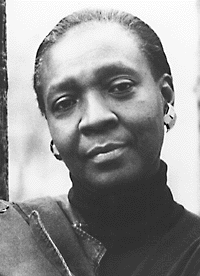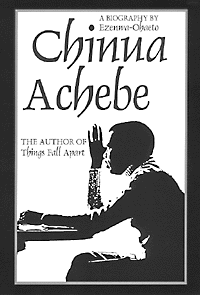Black to Africa
African Literature Conference at UT
By Sarah Hepola, Fri., March 13, 1998
|
|
For these and more reasons, the African Literature Association was founded in Austin in 1975, with the hopes of spreading and encouraging a deeper understanding about African literature. In subsequent years, the ALA has become a major outlet for the voice of African verbal arts, a forum for scholars and fans, as well as an international celebration, with conferences that have been held across the U.S. as well as in Africa itself. Twenty-four years later, the ALA returns to Austin, and with it returns its very first speaker, Chinua Achebe, acclaimed West African author of Things Fall Apart. In addition to Achebe, the conference will feature other prominent African authors, African performances, poets, movies by African filmmakers, as well as panels on issues facing the treatment and dissemination of African literature.
But why should you care?
After all, for most Westerners, Africa remains a remote and hazy mystery, a ganglion of internal strife and political turmoil, a continent of developing countries whose highest pursuits tend less toward art than toward survival. African literature, then, is a remote and hazy mystery which responds to these political injustices; a riddle within a riddle. However, over the past three decades, when powers have tried to submerge their sound, African voices have bubbled up to the surface and exploded. Political, difficult, conflicted, and almost always eloquent, these writers are increasingly occupying a space in America: in academia, on the bookshelves, and even in the high school classroom.
It is groups like ALA which have allowed a number of these "previously unheard voices of folklore to come to the fore," Gebrewold comments. One such voice is keynote speaker Achebe, whose 1958 book Things Fall Apart is now a classic, portraying a man thrust between his own culture and the advent of the white man, a clash which eventually ends in his own suicide. Achebe teaches at Bard College and is only one of a slew of talented artists who left native Africa to either escape persecution or to find any hope of being published. It is these dire circumstances that keep the ALA politically minded, because, as Gebrewold points out, "the literature demands that." However, it is this fierce activism, as well as unfamiliar oral traditions, which may continue to alienate Western audiences, leading many to argue that this literature does not deserve a place in the classroom beside the giants of Western literature.
|
|
For her students, the introduction to African literature is not an alienating but rather an enriching experience. Lamin notes, "Students are amazed and overwhelmed by the conflict of African culture and its impending doom. They are unaware of life outside the U.S. And yet, so young, they are open to ideas, can see more universal themes. And in African literature, they see the same desire for peace, harmony, and family unity that they have. They can see things that are similar instead of concentrating on things that keep us apart."
Though universal, Gebrewold points out, African literature retains that singularity in its conception of the cosmos, sense of proverbs, riddles, and folklore. Like all great literature, the best of African literature can be universal while exploring the minute. And with a whole new generation of African writers coming to prominence, these are voices that deserve to be heard.
Achebe will speak at the conference Thursday, March 26 at 8pm. at the LBJ Auditorium on the UT campus. Guadaloupean Maryse Condé will speak Saturday, March 28 at 12:45pm at the Longhorn Room in the Omni Hotel. All conference events are free; more information concerning the conference can be found at http://www.cwrl.utexas.edu/~ala










